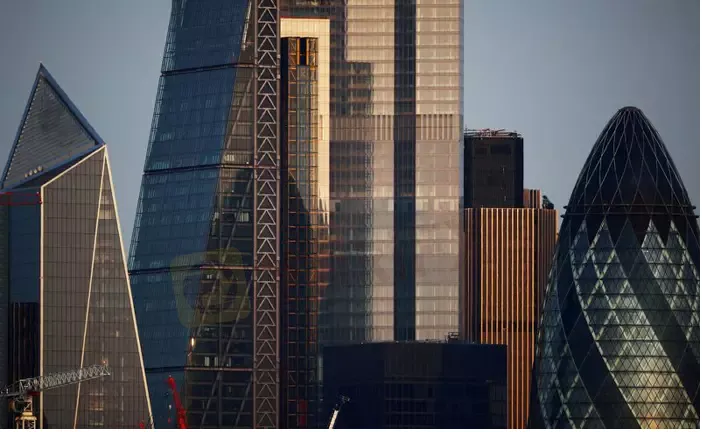简体中文
繁體中文
English
Pусский
日本語
ภาษาไทย
Tiếng Việt
Bahasa Indonesia
Español
हिन्दी
Filippiiniläinen
Français
Deutsch
Português
Türkçe
한국어
العربية
The pound, gilts and renewables: the winners and losers under Britain’s future PM
abstrak:The race to be the next leader of Britain’s ruling-Conservative Party and the country’s prime minister is into its final leg, with the September outcome likely to shape the fortunes of sterling, gilts and UK stocks in coming months.

The contest between foreign minister Liz Truss and former finance minister Rishi Sunak to succeed Boris Johnson hascentred on clear policy dividing lines.
Sunak has vowed to control inflation and accused his rival of pushing for unfunded tax cuts that only fuel price pressures. Truss has said her priority is to kickstart growth and the tax cuts she plans to do will not be inflationary.
Heres a look at some of the assets that could emerge as likely winners and losers.
Sterling respite?
The pound could be a short-term winner. If either candidate embarks on tax cuts, the economy could get a short-term boost and the Bank of England (BoE) may be inclined to keep hiking rates to ward off further price pressures. Sterling has slid 10% against the dollar this year. That‘s partly because the BoE has hiked at a slower pace than the Federal Reserve, even with Thursday’s big rate hike.
A BoE more determined to raise rates because of looser fiscal policy should help sterling.
But its longer-term fortunes will be tied to the economy. The BoE has just warned of a recession with a peak-to-trough fall in output of 2.1%.
If lower taxes fail to stimulate growth as Truss predicts, and worsens government finances, sterling could struggle. Her proposal to review BoE independence could also weigh. Any greater government role in monetary policy would hurt confidence in Britains economy.

GILTS GROUNDED British government bonds, or gilts, are in the losers campfor now. Investors sense the outcome, especially if Truss wins, will lead to more fiscal stimulus, higher inflation and rates.
Citi forecasts a further net fiscal boost of 40 billionpounds ($49 billion) over the coming 12 months, adding 0.8percentage points (pps) to economic growth by end-2023 and 0.4pps to underlying inflation by 2024.
ING economist James Smith said that 30 billion pounds of taxcuts, as proposed by Truss, would likely require an extra 25-50bps of BoE tightening.
Higher rates for longer could further lift 10-year gilt yields, already up almost 100 bps this year to 1.92%.

LEVELLING UP THE FTSE Higher bond yields could hurt equities, especially growthstocks, said Investec chief economist Philip Shaw, noting thedifficulty in making sector-specific conclusions just yet.
“For example, hypothetically are we looking at morelevelling up? If we are, perhaps infrastructure stocks could geta boost, but we were hearing Truss was trying to cutsalaries outside London, which doesnt exactly signal acommitment to levelling up,” he said.
Truss has backtracked on a pledge to introduce regionalpay boards. Johnsons “levelling up” agenda to reduce regional inequalities helped his 2019 election win.
Truss promise to halt an increase in corporation tax also means stock markets might welcome a Truss victory over a Sunak one, although the outlook for the economy will likely remain the bigger driver.
The FTSE 100 is up just 0.9% in 2022, but has outperformed European shares which are down 10%.

Some sectors were in focus as the contest plays out.
AJ Bell‘s head of investment analysis Laith Khalaf said Truss’ plans to raise defence spending to 3% of economic growth could give defence stocks “a little pump”.
Focus on security spending following Russias invasion of Ukraine has helped lift the FTSE 350 aerospace and defence sub-index almost 15% this year, versus a broader 1.8% drop for the FTSE 350.
Graphic: Defence stocks- https://fingfx.thomsonreuters.com/gfx/mkt/dwvkrwdmbpm/Pasted%20image%201659693556855.png
Khalaf added that a Sunak victory could boost the renewable sector given Sunaks “full-throated commitment to net zero”.
Truss has said she will review how Britain will reach its2050 net zero target to see how it can be done in a more“market-friendly” way.
Finally, insurers such as Aviva and Legal & General could be among the winners.
Truss has said she wants to reform Solvency II rules, a legacy of EU membership, which govern the amount of capital insurers need to hold against their investments.
Insurers are lobbying to hold less capital against riskier assets such as infrastructure, a change which they say will help them fund economic growth.

Disclaimer:
Ang mga pananaw sa artikulong ito ay kumakatawan lamang sa mga personal na pananaw ng may-akda at hindi bumubuo ng payo sa pamumuhunan para sa platform na ito. Ang platform na ito ay hindi ginagarantiyahan ang kawastuhan, pagkakumpleto at pagiging maagap na impormasyon ng artikulo, o mananagot din para sa anumang pagkawala na sanhi ng paggamit o pag-asa ng impormasyon ng artikulo.
Magbasa pa ng marami

Sa likod ng Orfinex Prime Brokerage: Isang kaso ng pagsalangsang at negligencia
Orfinex Prime: Mga Allegasyon ng Negligencia at Paglabas | Ang mga problema ng mga kliyente ay nagpapahayag ng mga hindi ligtas na pamamaraan sa pagbebenta, malinaw na presensya sa Dubai, at mga alalahanin ng pagsalangsang. Gumawa ng mga aksyon para sa proteksyon ng mga mamimili.

I-claim ang Iyong 50% Welcome Bonus hanggang $5000!
Bukas sa Parehong Bago at Existing na Customer!

IMF cuts global growth outlook, warns high inflation threatens recession
The International Monetary Fund cut global growth forecasts again on Tuesday, warning that downside risks from high inflation and the Ukraine war were materializing and could push the world economy to the brink of recession if left unchecked.

Starting Forex Trading: Creating A Profit Plan
A key factor in building a successful and profitable trading career is making your own plans. Your transaction plan will provide a good framework for guiding ever-changing currency prices to profit.
Broker ng WikiFX
Exchange Rate


